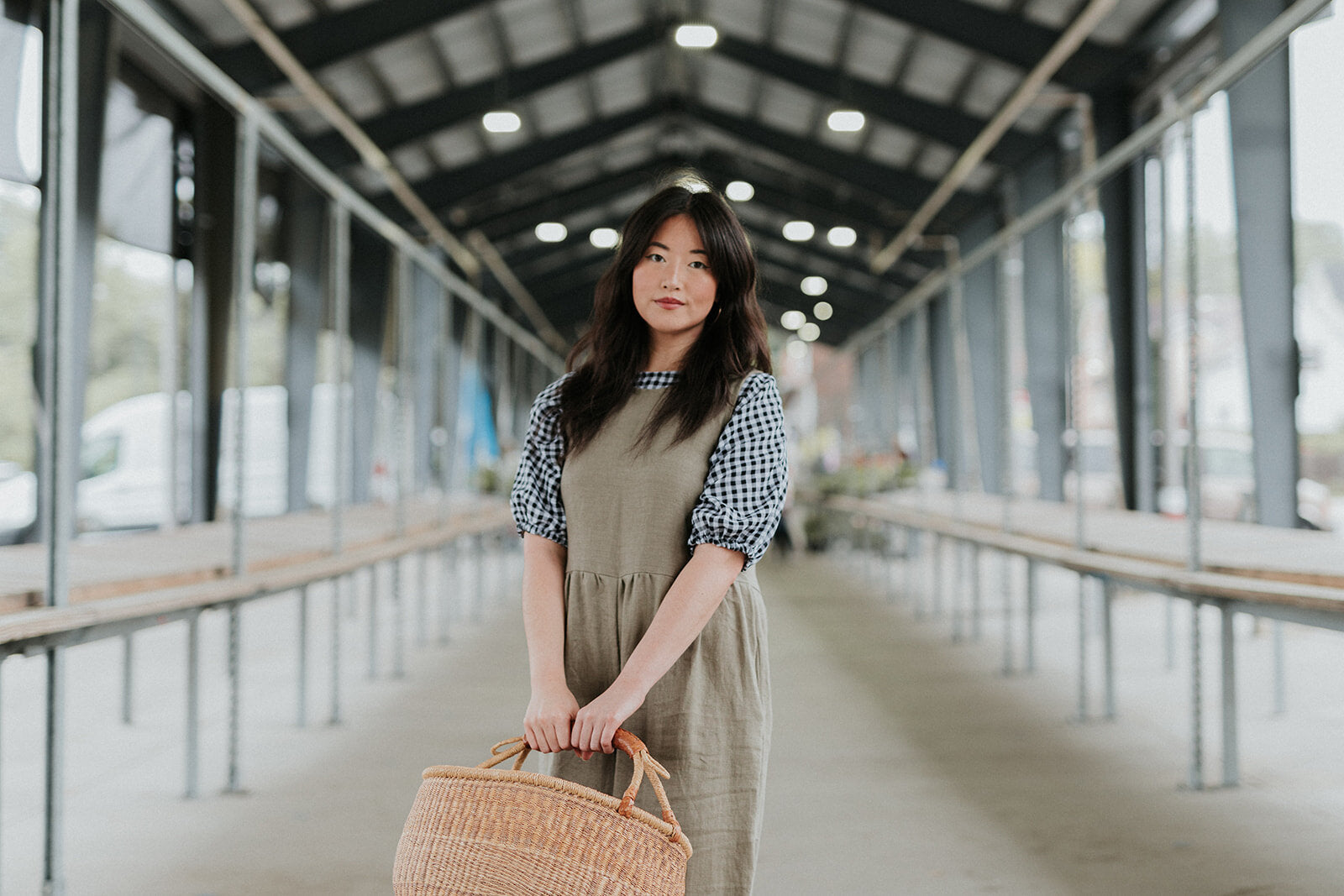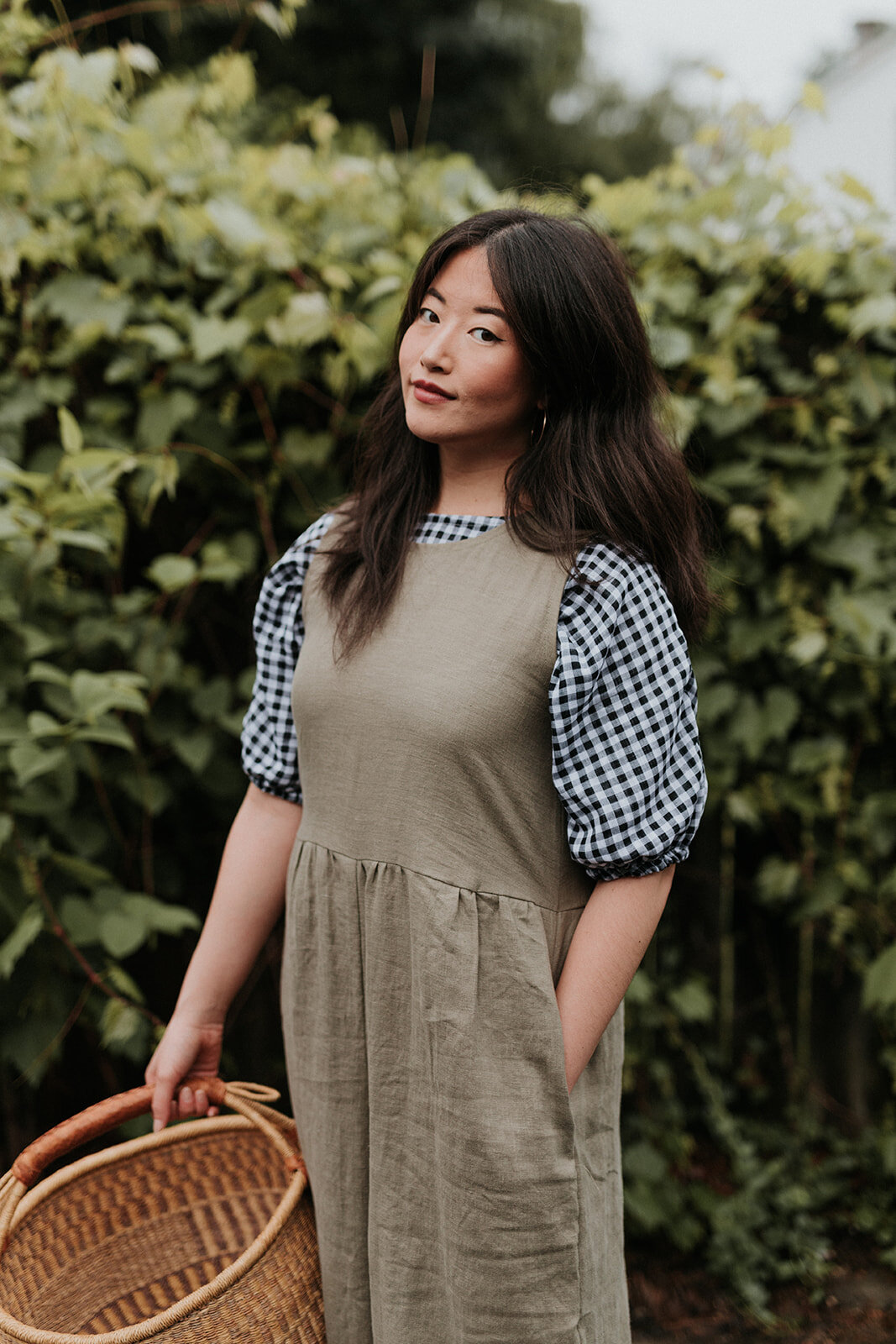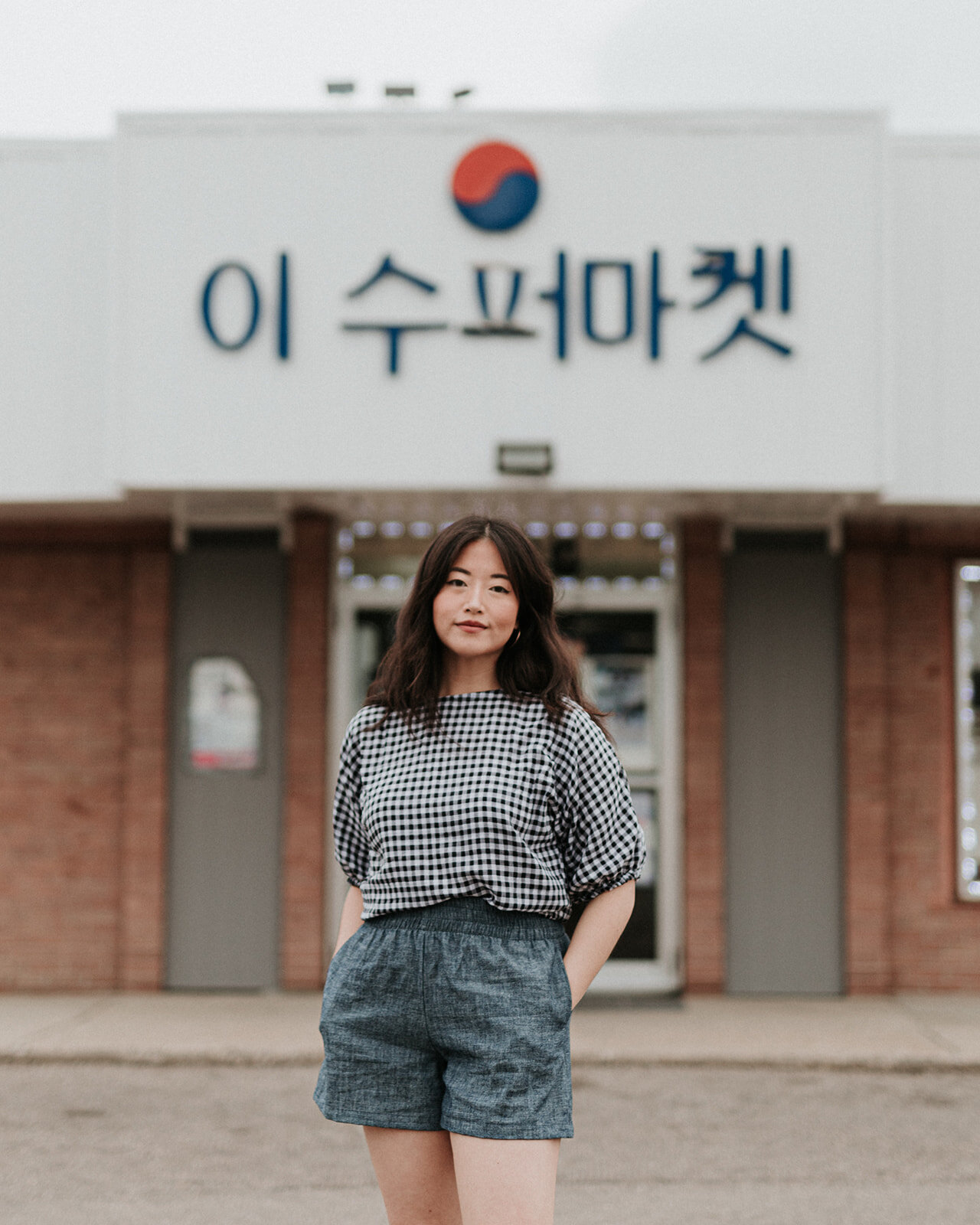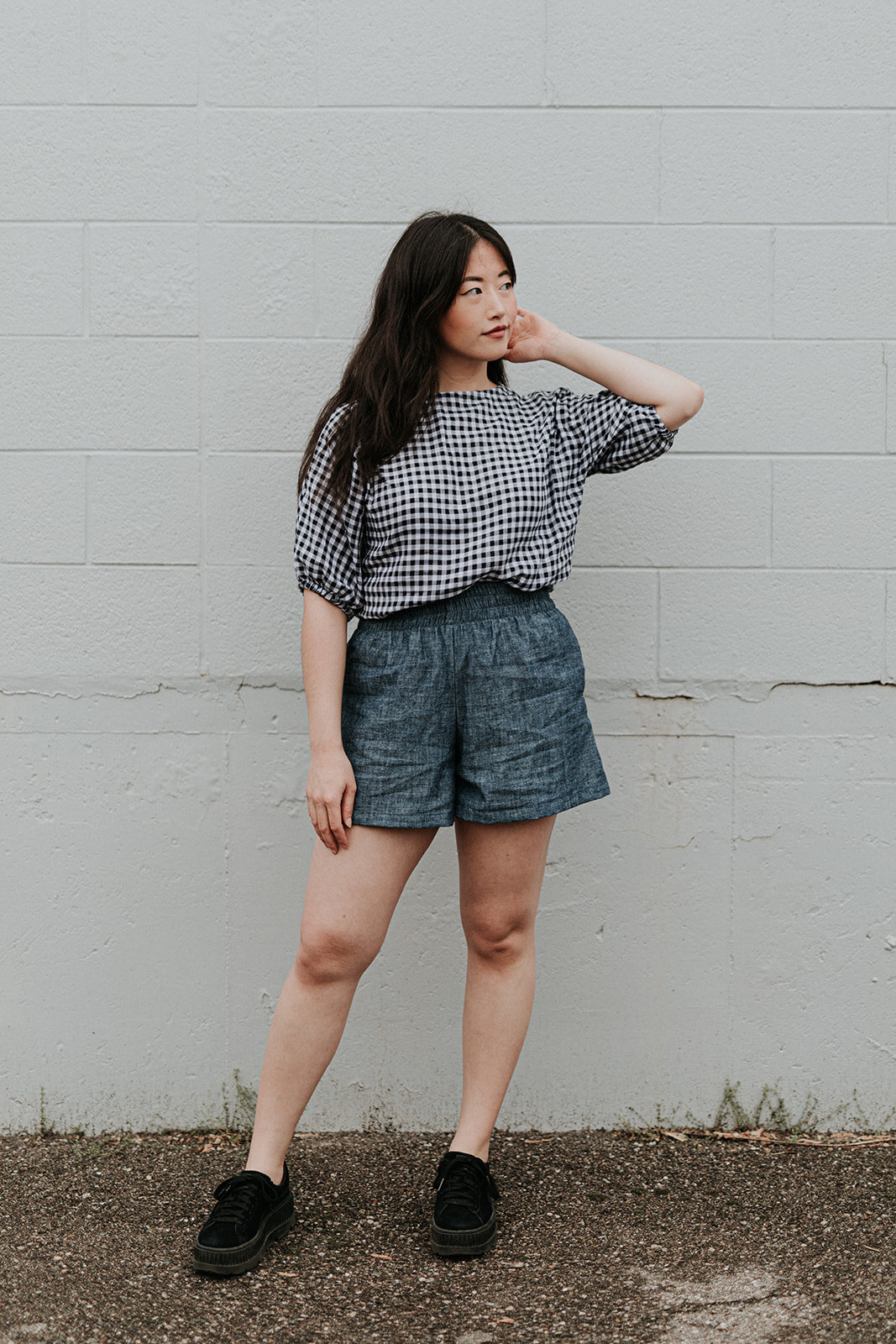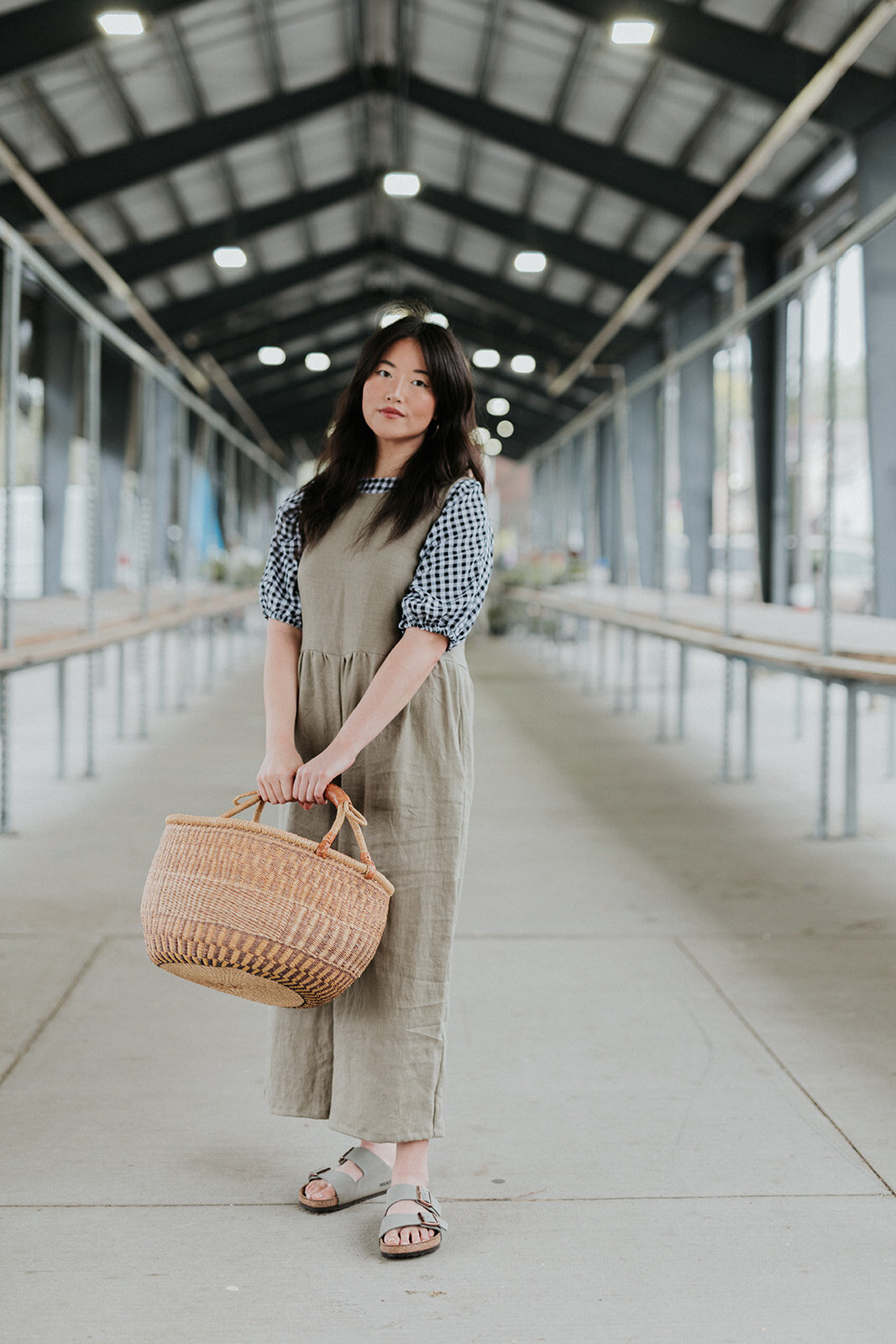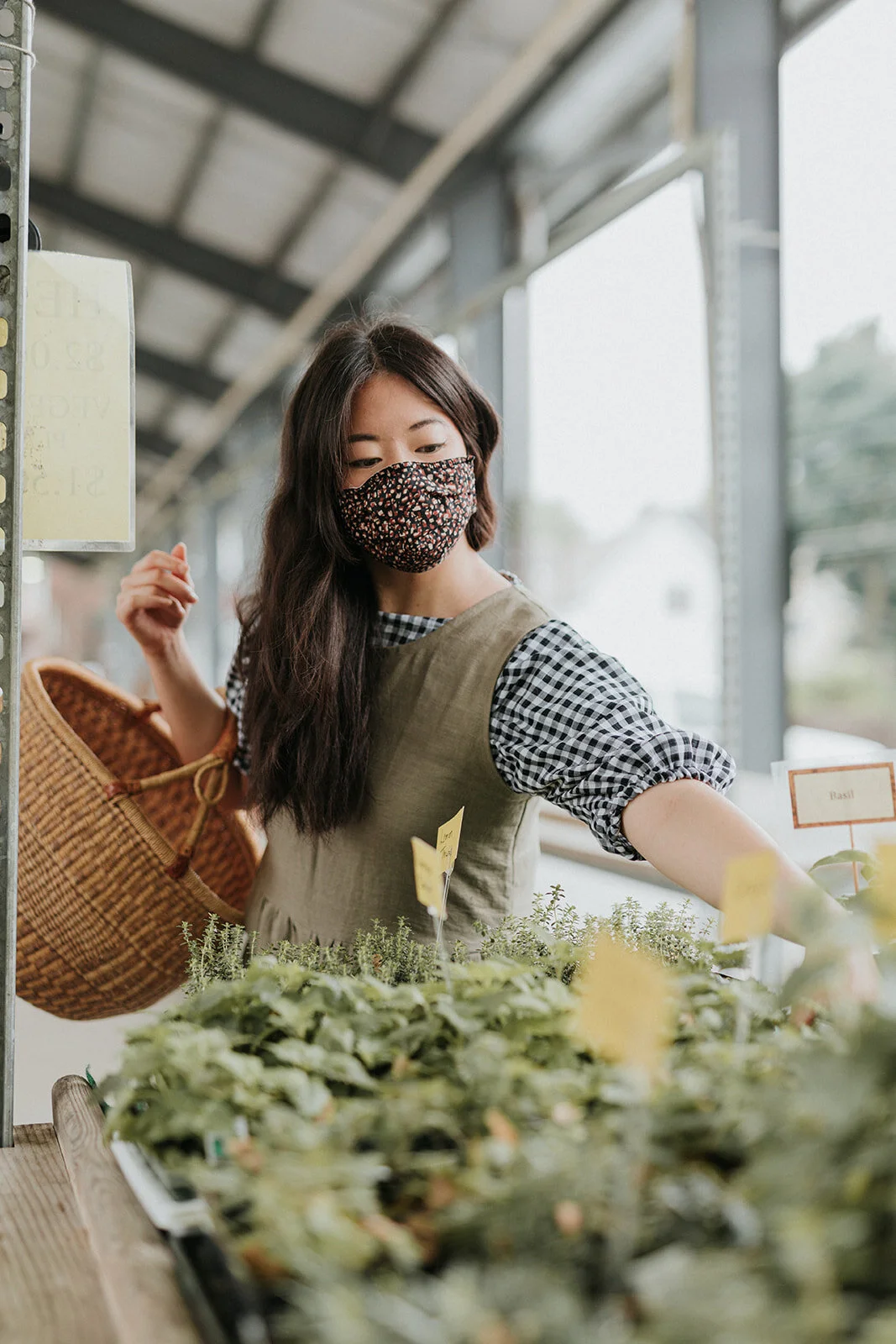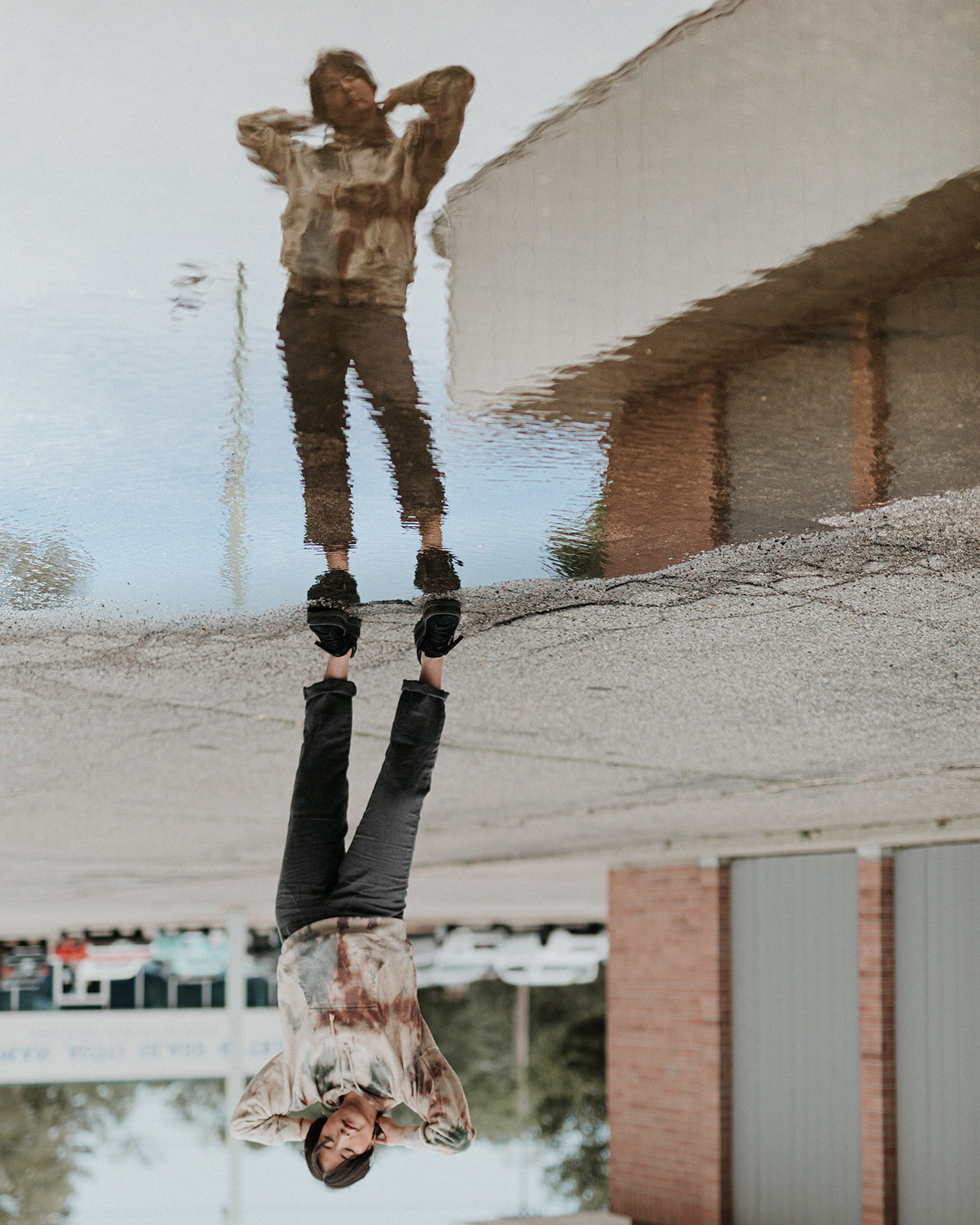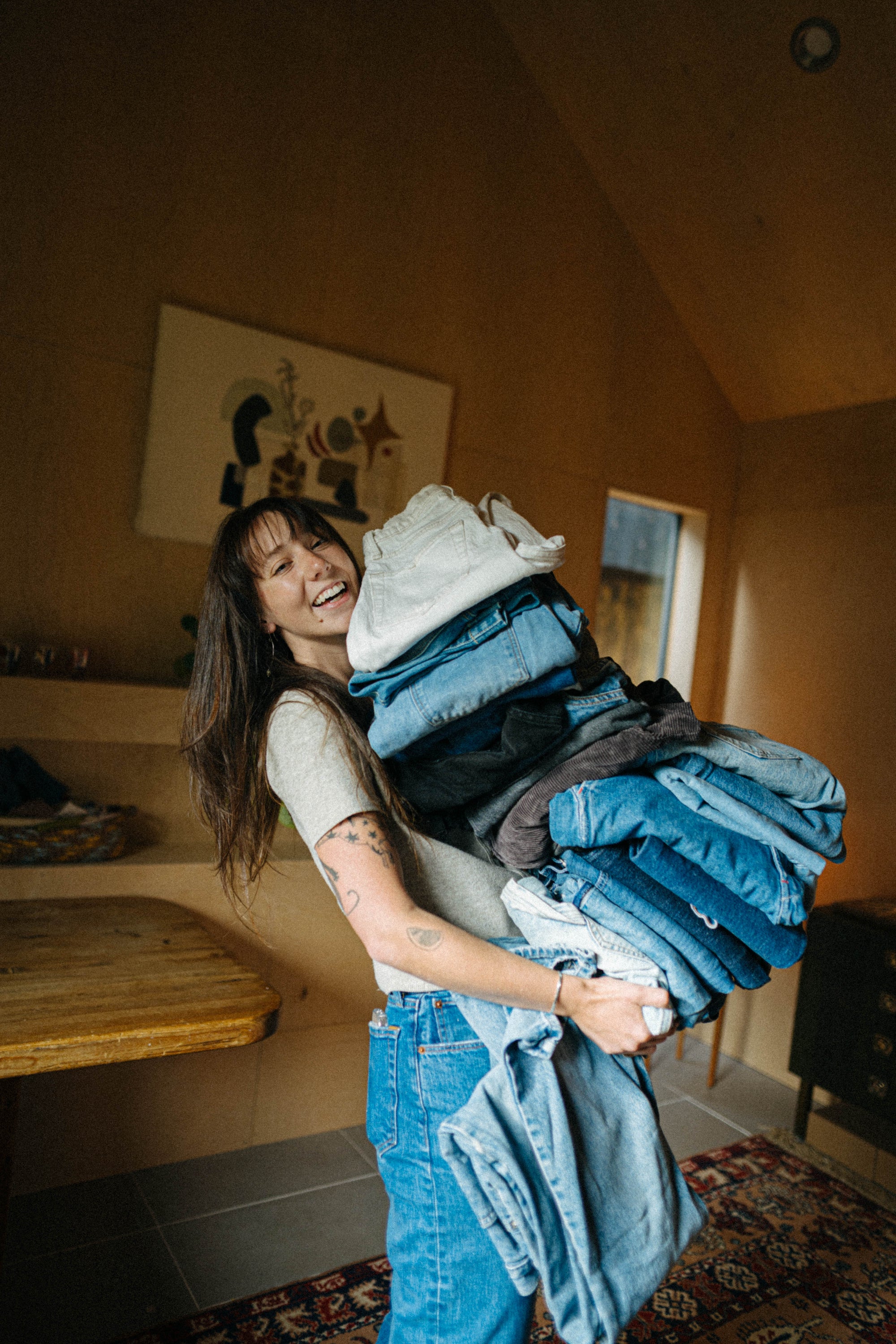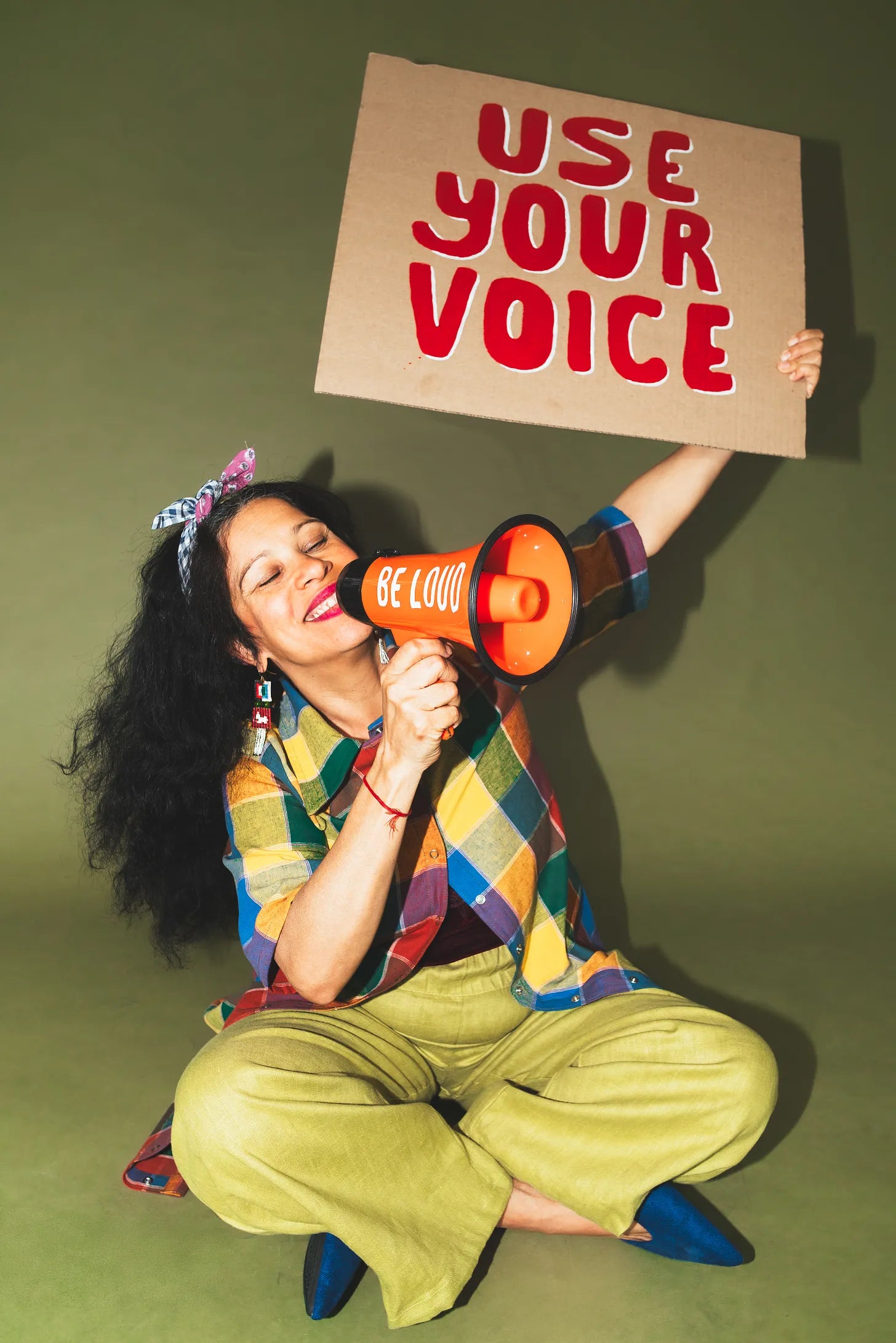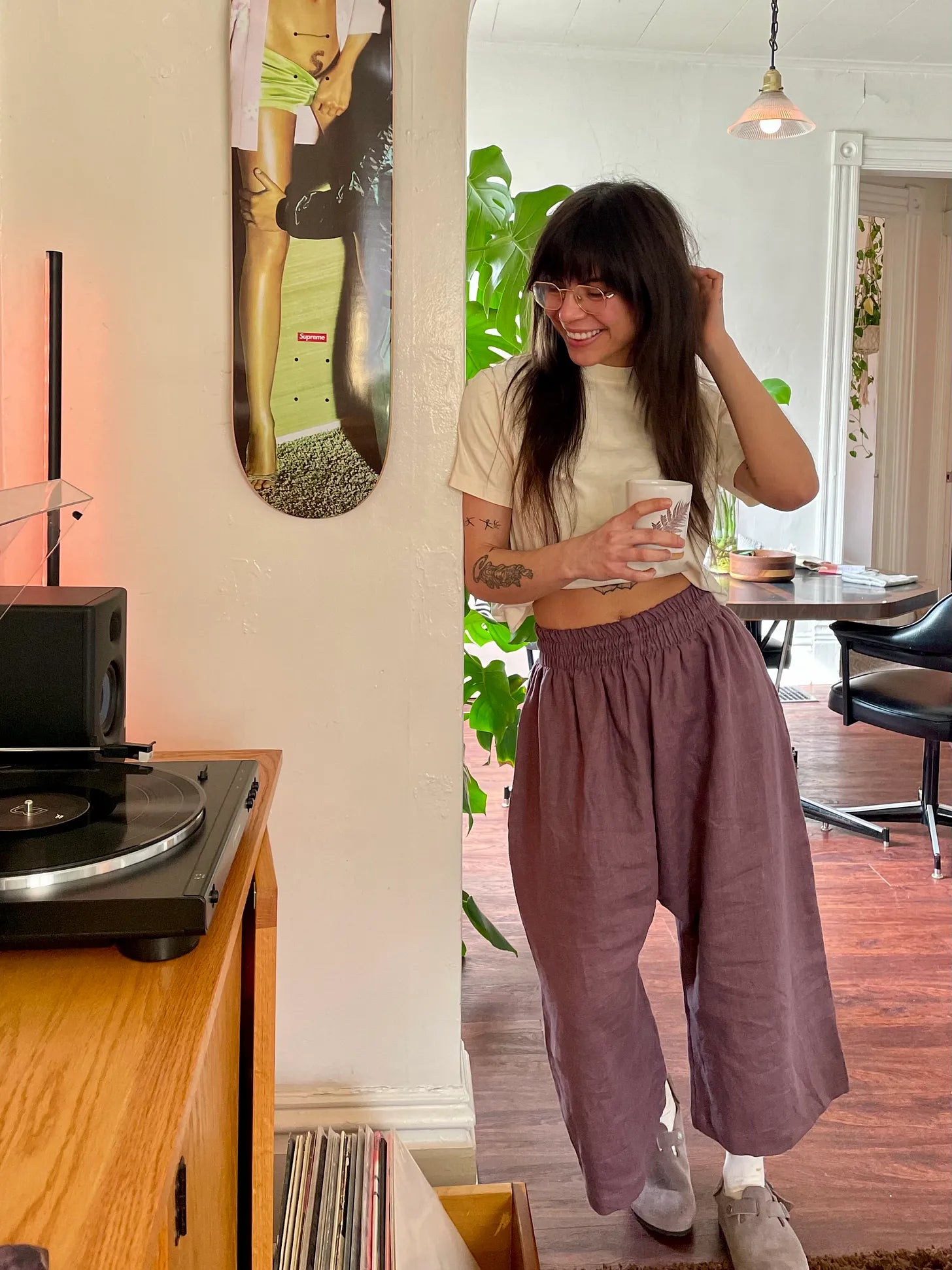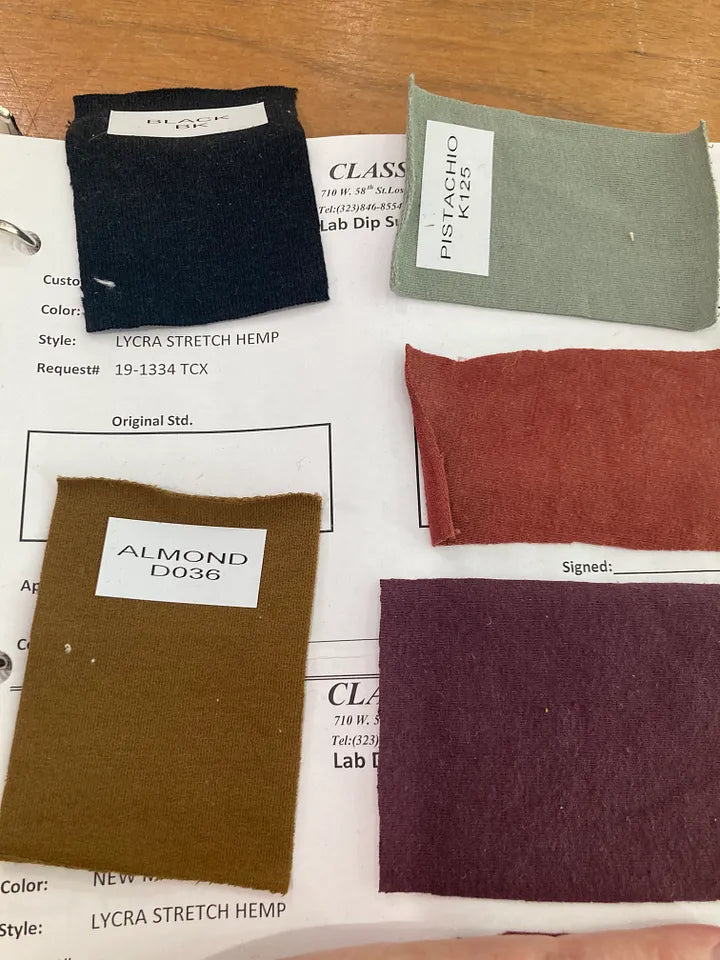Meet Kendra Valkema_ (@soon.hee.lee) a change-maker in our community that we admire & feature for her hard work!
Kendra makes waves in local food justice—encouraging fresh food access and purchase power. We learned SO MUCH about her hard work to advocate for policy change and combat the obstacles which prevents access to fresh food. We admire her passion for keeping the heart and soul of food culturally relevant and accessible for the diverse communities in Grand Rapids. Here is just a snippet of her beautiful perspective_
I try to support local Black, Latinx, Indigenous, and Asian owned businesses and speak out against white supremacy in our food system. Not everyone works for a nonprofit or grassroots organization tackling food justice issues directly, but everyone has a sphere of influence, and I believe we all have the potential to catalyze positive, equitable change in our community.
Read more of Kendra’s passion for change in our interview with her below.
Kendra is wearing the Backyard Jumpsuit, Joni Top, and Beach Shorts.
Photography by Leigh Ann Cobb.
Tell us a little bit about your story and introduce us to your life - how did you get where you are today?
An essential part of my story is my identity as a Korean-American adoptee. I was born in South Korea and was adopted shortly after with my twin sister to a family in Michigan. I grew up in Holland, Michigan. Most of the Asian people I knew growing up were also adopted. But for a few years, every summer, my sister and I attended a summer camp with other Korean adoptees. There, we learned how to prepare Korean dishes like mandu, bulgogi, and kimbap. My mom would always prepare mandu and bulgogi for us on special occasions.
Food has always been a bridge for me to return to my heritage and continues to be an essential gateway to other cultures besides my own. This is also why learning about the origins of food, and honoring rather than appropriating and exploiting cultures for their food, is deeply important to me.
After high school, I attended college at Northwestern University in Illinois. Though I planned to study psychology, my plans pivoted when I participated in a program called Chicago Field Studies. Through that program, I completed an internship with an organization called Seven Generations Ahead and helped to develop and implement gardening, environmental, and nutritional programming for historically impacted communities and schools. I learned about the diverse field of food justice and environmental justice, and I felt called to a career that recognized food as an essential lever to creating more social and political equity.
After I graduated, I served in Washington, D.C. with an AmeriCorps program called FoodCorps. I then returned to West Michigan by way of Grand Rapids. I worked at the Community Food Club as the Program Manager and now work at Fair Food Network (based in Ann Arbor) as an Information Manager for the Double Up Food Bucks team. Grand Rapids is where I truly feel at home.
Despite the tensions here between the oppressors and the oppressed, there are also many people who refuse to be pushed to the margins, forgotten, and spoken over. This city feels like home to me for many reasons - one of them is because it's a place where everyone can positively impact their community with the gifts they have.
What does a typical day look like for you?
Right now, I still work from home, a privilege I'm grateful for every single day. So, I usually start my day with some home brewed coffee and emails. In my role, I collect, manage, and share data for the Double Up Food Bucks program. I used to conceptualize the work of social change as constantly people-facing, embedded in community and conversations non-stop. While this is true for many advocates and activists, I enjoy that, as an introvert, I can still show up to do the work in a way that allows me to use my gifts and doesn't leave me drained and burnt out.
Creating boundaries between my work and my home has been so challenging, so I try to keep a daily routine of shutting down my computer in the evening, playing with my cats, and preparing a delicious dinner at home.
Tell us about the fresh food advocacy work you do_
Professionally, I work for Fair Food Network on the Double Up Food Bucks program team. Double Up Food Bucks is a program in Michigan that anyone shopping with SNAP/EBT can participate in. SNAP dollars spent on fresh fruits and vegetables are matched by the program, doubling the fresh produce purchasing power for that person or family. In my role, I manage our program information and data, which is critical during a time of unprecedented participation in the SNAP program, not only in Michigan but across the nation. Millions of families have been affected by the negative economic impacts of the pandemic and school closures. In addition to my role with the Double Up Food Bucks program, I advocate as an individual citizen for diverse issues related to food justice.
I use my social media platform to share how others can support legislation related to our food system, such as efforts to create a pathway to citizenship and provide driver's licenses for all, which would show our farm workers that they are truly essential, rather than simply telling them they are.
How do you work to get fresh produce to different communities?
Double Up Food Bucks is unique from the traditional charitable food system that's well known in West Michigan. Rather than distributing food directly to people, our program incentivizes anyone shopping with SNAP to purchase more fresh fruits and vegetables from the places they're already shopping at. The Double Up program is active at more than 250 sites across the state, from large grocery stores to corner stores to year-round farmers markets and tiny farm stands. Instead of giving people produce they may not want or need, the program allows people to select the produce they want and encourages them to buy more of it without taking away from their food budget.
Tell us about what inspires you—either personally or at work.
Both personally and professionally, I am inspired by other people who are showing up with their unique gifts, wherever they are, and however they can. Latinx journalists telling the stories of essential workers who were exploited by their food industry employers before and during the pandemic. Black photographers who are capturing the collective pain and power at protests for Black lives. Graphic designers donating their skills to put together a fundraiser to support local Asian grassroots organizations. Community leaders saw a need for a grocery store in their community, so they created one. This past year has been ruthless in so many ways, but I have honestly never been more inspired by the resilience of others and the collective care we can offer each other.
2020 was tough for so many people. What was the silver lining for you?
I started going to therapy regularly in 2020, a (privileged) choice that has changed my life. Overall, last year has made me more grateful for the privileges I have and more accepting of things outside of my control.
We think a lot about our natural resources and uplifting our communities. Tell us why community and sustainability is important to you!
I think that community and sustainability are mutually tied to each other. Without one, we can't have the other. Being in community with others creates opportunities for me to expand my empathy and practice compassion, which I think are essential to living sustainably. If we do not feel connected to each other and to the spaces we share with each other, we won't have the same motivation to take care of each other. I also think environmental sustainability will only be achieved when it centers the communities most impacted by environmental issues. I don't think it's sustainable to live in an isolated bubble, buying 100% organic and ethical products and biking to work, if we're not doing anything about our neighbors who don't make enough to feed their families fresh and healthy meals, who live near toxic waste sites, who are more likely to see a parking lot full of cop cars than one taken over by a farmers market. Sustainability needs to be inherently intersectional, and community makes that intersectionality more obvious.
What is your current favorite artist or album?
Anything Jacob Collier does.
Disclaimer from Kendra_ “My views are solely my own and do not represent those of Fair Food Network (this needs to be included for legal reasons since FFN is a nonprofit that cannot do outright political advocacy).”

